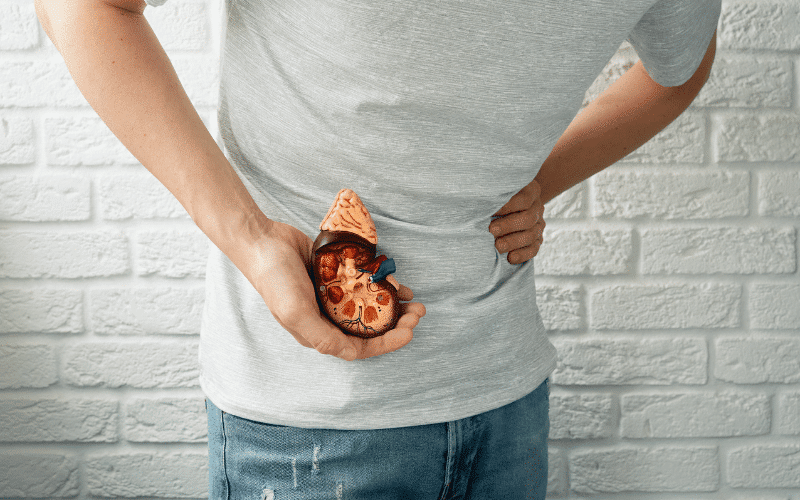Introduction: The Growing Concern of Kidney Stones in Men
Kidney stones are a painful and prevalent health issue, affecting millions of people worldwide. In particular, men are more susceptible to developing these solid mineral deposits in their urinary system. With a better understanding of the causes, one can take preventive measures and reduce the risk of developing kidney stones.
In this in-depth article, we will explore the top 10 causes of kidney stones in men. By examining these risk factors, we hope to provide valuable information for those looking to maintain optimal kidney health.
Kidney stones can significantly impact an individual’s quality of life, leading to severe pain, urinary issues, and even long-term kidney damage if left untreated. Therefore, it is crucial to understand what causes kidney stones and how to minimize their occurrence.
The following sections will discuss the leading causes of kidney stones in men, emphasizing their relationship with lifestyle choices, diet, and underlying medical conditions. Armed with this knowledge, men can take appropriate steps to mitigate their risk and maintain a healthy urinary system.

Cause 1: Dehydration: A Major Culprit Behind Kidney Stones
Dehydration plays a significant role in kidney stone formation. Inadequate water intake leads to concentrated urine, which increases the likelihood of mineral buildup and stone formation. Drinking enough water daily to maintain clear, light-colored urine is essential to prevent kidney stones.
Dehydration not only promotes kidney stone development but can also lead to other health issues such as heatstroke, low blood pressure, and constipation. To stay adequately hydrated, it is recommended to drink at least eight 8-ounce glasses of water per day, though individual needs may vary based on factors like climate, activity level, and overall health.
Increased physical activity or hot weather conditions can further contribute to dehydration. In these situations, it’s crucial to pay extra attention to fluid intake and adjust accordingly to ensure proper hydration levels. Drinking water-rich foods such as fruits and vegetables can also help maintain hydration.
Moreover, it is essential to monitor the color of your urine as an indicator of hydration. Dark yellow or amber-colored urine may signal dehydration, while pale yellow to clear urine indicates proper hydration. By maintaining optimal hydration levels, you can reduce the risk of kidney stones and promote overall health. (1)